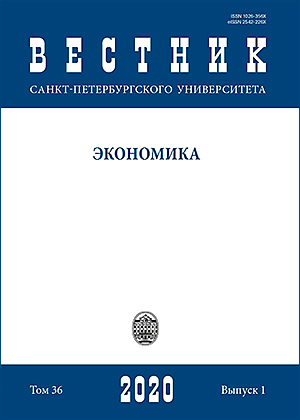Теоретические концепции формирования и анализа торговой политики: эволюция и современные вызовы в условиях трансформации международной торговой системы
DOI:
https://doi.org/10.21638/spbu05.2020.102Аннотация
Изучение формирования торговой политики в современных условиях гиперглобализации и трансформации глобальной системы управления требует применения новых теоретико-методологических подходов. С одной стороны, процесс формирования и реализации торговой политики тесно связан с широким комплексом вопросов — от электронной коммерции до проблем гендерного неравенства. С другой стороны, новейшая теория торговли призывает к анализу экспортной деятельности компаний в глобальных производственных системах и их торговых издержек. Значительно расширилась методология исследований, основанная на применении различных количественных методов. Все больше статей посвящено анализу конкретных инструментов торговой политики. Однако, несмотря на рост количества исследований по международной торговле и торговой политике в экономической, политической и правовой областях, до настоящего времени не разработан междисциплинарный подход, необходимый для более глубокого понимания влияния конкретных мер на социально-экономическое развитие стран. В настоящей статье представлен интегративный обзор исследований в ведущих зарубежных и российских журналах по международной торговле, а также приведен сравнительный анализ выявленных областей исследования.
Ключевые слова:
торговая политика, международная торговля, многосторонняя торговая система, теории международной торговли, протекционизм, свободная торговля
Скачивания
Библиографические ссылки
St Petersburg University Journal of Economic Studies, vol. 34, iss. 3, pp. 415–438.
Загрузки
Опубликован
Как цитировать
Выпуск
Раздел
Лицензия
Статьи журнала «Вестник Санкт-Петербургского университета. Экономика» находятся в открытом доступе и распространяются в соответствии с условиями Лицензионного Договора с Санкт-Петербургским государственным университетом, который бесплатно предоставляет авторам неограниченное распространение и самостоятельное архивирование.







